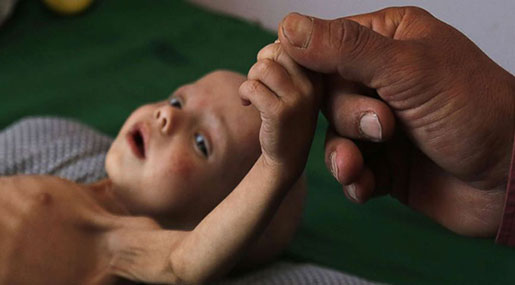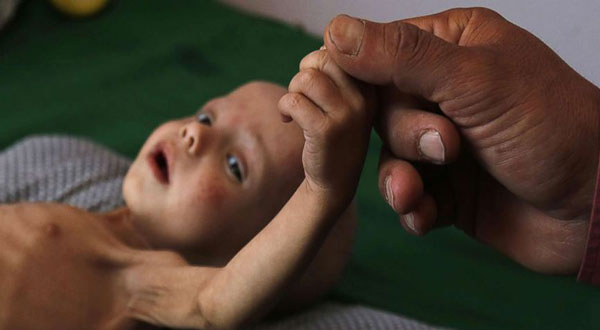
UNICEF: Yemen Worst Place on Earth to Be a Child

Local Editor
UNICEF's Middle East director is calling Yemen one of the worst places on Earth to be a child and urging all involved in the fighting to let humanitarian aid keep coming in.

Geert Cappelaere told reporters in Amman, Jordan, Sunday that UNICEF was able to get nearly 2 million doses of vaccines delivered to Sana'a airport Saturday, but that such success should not be a "one-off."
Cappelaere said far more supplies are needed and that ships carrying food, chlorine tables for drinking water, and treatments for diarrhea and cholera are on their way to the port of Hodeida.
"More than 11 million Yemeni children are today in acute need of humanitarian assistance. That's almost every single Yemeni boy and girl," Cappelaere said. "To all parties and all those with a heart for children, please take your responsibility now."
He was talking about the responsibility for all those involved in Yemen to stop fighting and stop what he calls the war on children.
"Today we estimate that every 10 minutes, a child in Yemen is dying from preventable diseases," he said.
More than 12,000 people have been killed since the onset of the campaign more than two and a half years ago. Much of the Arabian Peninsula country's infrastructure, including hospitals, schools and factories, has been reduced to rubble due to the war.
The Saudi-led war has also triggered a deadly cholera epidemic across Yemen.
According to the World Health Organization's latest count, the cholera outbreak has killed 2,167 people since the end of April and is suspected to have infected 841,906.
Meanwhile, the United Nations has described the current level of hunger in Yemen as "unprecedented," emphasizing that 17 million people are now food insecure in the country.
It added that 6.8 million, meaning almost one in four people, do not have enough food and rely entirely on external assistance.
Source: News Agencies, Edited by website team
Comments
- Related News



